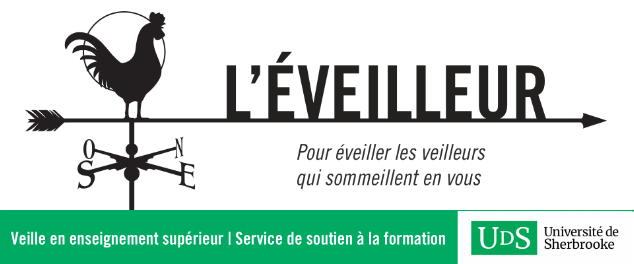Pour Justin Maxwell, professeur d’anglais à l’Atelier de création littéraire de l’Université de la Nouvelle-Orléans, le détachement des étudiants du millénaire devient pour eux une stratégie de survie dans un monde où ils sont constamment sollicités. Sa contre-offensive? Raconter des anecdotes qui démontrent l’importance de la notion enseignée, plutôt que de simplement insister sur cette importance.
“Anecdotes are a rhetorical strategy. They augment course material and give it a context that subverts millennial detachment. They are not a panacea. This approach is a rhetorical idiom that simply sits atop the methods you currently employ in the classroom.
The application is straightforward: Tell students about the moment you personally came to care about the concept under discussion, or a moment where it directly intersected with your life. All I need to do is share one instance that shows my own engagement with the material I’m introducing.
Anecdotes don’t have to be well-told, just genuine. Students will engage with emotional honesty over smooth delivery. When they see why some subject is worthy of my time, they understand why it’s worthy of theirs.” (Maxwell, 2017, notre emphase)
Il donne l’exemple d’avoir raconté, dans un cours sur le costume de théâtre, la fois où un étudiant étranger s’inquiétait de l’absence du “vrai” professeur, alors qu’il s’habillait en jeans et T-shirt à la manière de ses étudiants…
“Anecdotal pedagogy is an opportunity to connect with disconnected students. It takes very little time, helps facilitate discussion, and connects students to the material. Even the students who aren’t inclined toward the material benefit from a “show, don’t tell” teaching environment.” (Maxwell, 2017)
Il offre toutefois une mise en garde intéressante, reprise par certains des commentaires à son article:
“The connection between myself, the text, and the topic prevented the anecdote from devolving into the trivial. […].
My costume anecdote underscored the idea we were discussing in class that day, but the material in the text illustrated it, too. The difference was that I had told them about a real moment from my life. Suddenly, their classroom experience wasn’t an accumulation of data points but a real thing that happened to a real person in the real world.” (Maxwell, 2017, nos emphases)
En effet, d’après un commentateur:
“…I spend much effort on anecdotes and metaphors to make difficult material tangible to my classes. But in return I regularly receive comments that “professor is always going off on tangents,” implying that I should spend more time “sticking” to the material…” (
Un autre commentateur a bien compris l’importance de telles anecdotes pour favoriser la relation entre étudiants et enseignant:
“The unspoken message of personal anecdotes is the invitation they provide to a relationship with the teacher. It isn’t about only engaging the students in the subject matter–it’s about giving them support in doing what is really necessary for a good education. Show them you care by risking a bit of openness, even staged openness, and you give them permission to invest themselves in caring about what you say.” (Michael O’Neill, 10 août 2017)
Source:
Maxwell, Justin, “Anecdotal Pedagogy: Show, Don’t Tell“, The Chronicle of Higher Education, 9 août 2017





